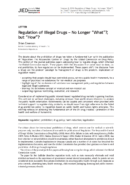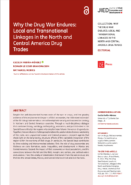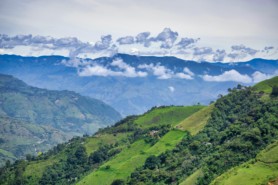Posted on 15 Apr 2021
This special section explores the ways in which heterogeneous governance actors, including formal state, private enterprises and organized criminal groups, co-produce cities.
As spaces that concentrate economic wealth and political power cities are prone to struggles over the distribution of resources and often become arenas in which negotiations between the formal state and illicit actors – such as militia, mafia, drug trafficking and paramilitary groups – materialize and shape bodies, architectures and the built environment in general.
We invite contributions from around the world and a broad range of academic disciplines, including but not limited to anthropology, geography, sociology, criminology, political science, and international relations. In addition to full length research papers, we also invite policy analyses from activists, NGO leaders, or practitioners.
In their contributions, authors are invited to respond to (some of) the following questions:
1. How are different materialities and objects, such as urban utilities, housing, bodies/senses, technologies, and weapons tied to criminal and/or state activity and to the negotiations, conflicts or collaborations between state authorities and illicit groups?
2. What kind of built (infra)structures favor illicit activities and economies?
3. What patterns of urban forms, of buildings/architectures, and of infrastructures emerge out of il/licit city-making?
4. Do licit-illicit orders engender more or less equal distribution of goods and commons, as well as access to housing, infrastructures, and (public) spaces?
5. What kind of responses to illicit city-making can we observe from urban populations?
Deadline for submission of abstracts: May 20, 2021
Please submit your abstract and bio to both editors: f.i.mueller@uva.nl; j.h.j.weegels@uva.nl.



